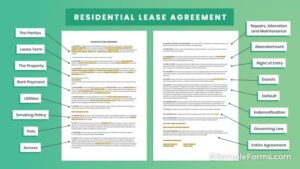
Welcome to the wacky world of Credit card debt relief, where financial freedom isn’t just a dream, it’s a plan! Picture this: you’re drowning in a sea of plastic, and those little cards are ganging up on you like a flock of angry geese. Fear not, brave reader! In this amusing journey, we’ll unveil clever strategies to slash that debt and make your wallet feel as light as a feather.
From consolidation options that may look like a magic trick to negotiating terms with creditors that could make a seasoned diplomat proud, we’re here to arm you with all the tools you need. Whether it’s credit counseling or home equity loans, we’ll guide you through a smorgasbord of debt relief options, ensuring you’re not just another number in the credit system.
Credit Card Debt Relief Strategies
Picture this: your credit card bill arrives, and it feels heavier than a thousand-pound gorilla sitting on your wallet. Fear not, for there are paths to debt relief that can lighten your financial load. With some savvy strategies, you can navigate your way out of the credit card jungle and emerge victorious, wallet in hand!When tackling credit card debt, it’s essential to consider various strategies tailored to your situation.
Every individual’s financial landscape differs, so a one-size-fits-all approach won’t cut it. While some may benefit from consolidating their debts into a single payment, others might find negotiating with creditors a more fruitful avenue. Here, we’ll explore effective methods to reduce credit card debt, weigh the benefits and drawbacks of debt consolidation options, and arm you with tips for negotiating better repayment terms.
Effective Methods for Reducing Credit Card Debt
To effectively reduce credit card debt, different strategies can be employed depending on your financial situation. Here are some noteworthy methods:
- The Snowball Method: Focus on paying off your smallest debt first. Once that’s gone, roll those payments into the next smallest debt. It’s like a snowball rolling downhill, gaining momentum as it goes!
- The Avalanche Method: Prioritize your debts with the highest interest rates. This method minimizes the amount of interest you pay over time, which can save you a bundle in the long run.
- Balance Transfers: Move your debt to a new credit card with a 0% introductory interest rate. Just be sure to read the fine print so you’re not caught off guard by sneaky fees!
- Budgeting: Creating a budget helps you identify where your money is going and can free up funds to tackle that debt like a ninja in the night.
Benefits and Drawbacks of Debt Consolidation Options
Debt consolidation is like gathering all your credit cards for a big family reunion—only this time, you’re merging them into one! However, before you RSVP to this party, consider the pros and cons.Benefits of debt consolidation include:
- Simplified Payments: One monthly payment means less time on math and more time enjoying life.
- Lower Interest Rates: Consolidating your debt can lead to reduced interest rates, saving you money.
- Improved Credit Score: Paying off debts can positively impact your credit score over time.
On the flip side, drawbacks might include:
- Fees: Some consolidation loans come with fees that can add to your debt burden.
- Longer Payment Terms: While monthly payments may be lower, you might be in debt for longer, which can feel like a never-ending saga.
- Potential for More Debt: If you don’t change your spending habits, you might find yourself right back at square one.
Tips for Negotiating with Creditors for Better Repayment Terms
Negotiating with creditors can feel daunting, but it’s a bit like asking your boss for a raise—sometimes, all it takes is a little confidence! Here are tips to help you secure better repayment terms:
- Know Your Rights: Familiarize yourself with the Fair Debt Collection Practices Act. Knowledge is power, and it can help you stand your ground.
- Be Prepared: Gather your financial documents, and be ready to explain your situation. A well-prepared case is more likely to win over your creditor.
- Offer to Pay a Lump Sum: If you have some savings, consider proposing a lump sum payment to settle your debt for less than the total owed. It’s like a yard sale for your debt!
- Stay Calm and Polite: Remember, the person on the other end is just doing their job. A little kindness can go a long way in negotiations.
Financial Tools and Resources
Navigating credit card debt can feel like trying to find your way out of a corn maze blindfolded. Luckily, there are financial tools and resources that can help light up your path and guide you to a debt-free life. When armed with the right knowledge, you can tackle your financial obligations with confidence and maybe a little humor to lighten the load!
Credit Counseling Services
Credit counseling services are like the friendly GPS system for your financial journey. They help you navigate the treacherous terrain of debt by providing expert advice and personalized plans. These services work by analyzing your financial situation, creating a budget, and suggesting strategies to improve your credit score. Most credit counselors are certified and can help negotiate lower interest rates on your debts.
How They Work
You start by sharing your financial info with a counselor. They’ll assess your debt, income, and expenses, and then produce a tailored action plan. Think of it as a financial makeover, where you leave behind the frumpy debt and step out in your shiny new financial outfit.
Benefits
The major perks include reduced stress, improved credit scores, and—if you’re lucky—a few laughs along the way.
Home Equity Loans as Debt Relief
Home equity loans can be superheroes in the battle against credit card debt, swooping in with the ability to consolidate high-interest debts into a single, lower-rate loan. If you have equity in your home, you can leverage it to reduce financial burdens.
What They Are
Essentially, a home equity loan allows you to borrow against the value of your home. You’re cashing in on the fact that your home is worth more than the amount you owe on your mortgage.
Benefits and Risks
While it can lower your interest rate and monthly payments, it’s important to remember that your home becomes collateral. If you miss payments, you could face foreclosure. So, it’s like trusting a cat to take care of a goldfish: you might want to think twice!
Using Lease Leasing to Balance Financial Obligations
Lease leasing is a strategy where you can balance your financial obligations without sacrificing your lifestyle. It’s like bringing a dance partner to a party—you can still enjoy the music while keeping your finances in check.
Understanding Lease Leasing
This involves leasing equipment or vehicles instead of purchasing them outright. This allows you to conserve cash flow for other expenses while still having access to the latest tools or transportation.
Advantages
Leasing often requires a lower upfront payment and reduces the need for expensive repairs. It’s a practical solution that can keep your budget intact while letting you ride in style.
Considerations
Just like any dance, timing is key. You need to ensure that your lease terms align with your financial goals.
“Remember, with the right financial tools, you can turn your debts into mere memories rather than mountain-sized monsters lurking in your closet!”
Comprehensive Debt Management

Crafting a personalized debt management plan is like putting together a jigsaw puzzle, where each piece plays a crucial role in seeing the bigger picture of your financial health. In this section, we’ll detail the steps necessary for you to create your own plan, understand the function of estate plan trusts in managing your financial assets, and compare various debt relief programs, all while keeping your credit score in mind.
Let’s dive into the world of debt management, where we turn financial woes into wows!
Steps for Creating a Personalized Debt Management Plan
Creating a debt management plan is not just a task on your to-do list; it’s more like an exciting scavenger hunt for financial freedom! Here are the essential steps to get you on the right path:
- Assess Your Financial Situation: Start with a deep dive into your finances. Create a list of all your debts, including amounts, interest rates, and due dates. Knowing what you’re dealing with is half the battle.
- Set Financial Goals: Establish realistic and achievable goals. Want to pay off that credit card with the high interest? That’s a great start!
- Create a Budget: Build a budget that includes your necessary expenses and how much you can allocate toward debt repayment each month. If your budget feels like a straightjacket, loosen it a bit – your financial freedom is the goal!
- Prioritize Your Debts: Focus on high-interest debts first; they’re the pesky weeds in your garden of finances that need to be pulled out right away.
- Explore Debt Relief Options: Research various debt relief strategies, such as debt consolidation, credit counseling, or debt settlement. Choose the one that suits you best, like picking the right ice cream flavor!
- Implement and Monitor: Start your plan and monitor it regularly. Adjust as necessary, because life (and expenses) can sometimes throw curveballs.
Role of Estate Plan Trusts in Managing Financial Assets
Estate plan trusts serve as the financial bodyguards for your assets. They are like secret vaults protecting your wealth from creditors and ensuring that your financial legacy is passed on smoothly. Here’s how they work:
“Trusts are designed to manage your assets, protect them from unnecessary taxation, and ensure your wishes are honored after you’re gone.”
When you set up a trust, you appoint a trustee to manage the assets within it. This can help shield your wealth from creditors and provide a structured distribution plan for your heirs. Here are the key benefits of using trusts in your estate planning:
- Asset Protection: Trusts can protect your assets from creditors and legal claims, almost like a superhero cape for your finances.
- Tax Benefits: Certain trusts can offer tax advantages that help preserve more wealth for your heirs, ensuring they won’t need to sell the family treasure to pay Uncle Sam.
- Control Over Distribution: Set specific terms for when and how beneficiaries receive their inheritance, ensuring they don’t blow their fortune on a fleet of gold-plated bicycles.
- Avoiding Probate: Assets in a trust usually bypass the lengthy probate process, meaning your heirs get their inheritance faster than you can say “financial freedom.”
Comparison of Debt Relief Programs and Their Long-Term Impacts on Credit Scores
Navigating the realm of debt relief programs can resemble a competitive game show, with different options vying for your attention. Not every choice is a winner, especially when it comes to your credit score. Here’s a breakdown of some popular debt relief programs and their lasting effects on your credit:
“Choosing the right debt relief program can be the difference between a financial comeback and a credit score catastrophe.”
Here’s a comparison of various debt relief options and their impacts:
| Debt Relief Option | How It Works | Impact on Credit Score |
|---|---|---|
| Debt Consolidation | Combines multiple debts into a single loan with a lower interest rate. | May have a temporary dip due to new credit inquiries, but can improve score over time if payments are made on time. |
| Debt Settlement | Negotiates with creditors to pay a lump sum that’s less than the total owed. | Significant negative impact due to settled accounts being reported as “settled” instead of “paid in full.” |
| Credit Counseling | Involves working with a counselor to create a debt management plan. | Minimal impact if you stick to the plan, but enrolling in a DMP may be noted on your credit report. |
| Bankruptcy | Legal process that discharges most debts. | Severe long-term impact; stays on credit report for up to 10 years. |
Last Recap

As we wrap up our financial escapade, remember that Credit card debt relief isn’t just about surviving the storm, it’s about dancing in the rain of financial possibility! With the right strategies, tools, and a sprinkle of humor, you can reclaim your financial future and banish those pesky debts to the land of forgotten bills. So strap on your financial cape, and go forth to conquer that debt!
FAQ Explained
What is credit card debt relief?
Credit card debt relief refers to various strategies and programs designed to help individuals reduce or eliminate their credit card debt.
How can I negotiate with my creditors?
You can negotiate with creditors by directly contacting them, explaining your situation, and requesting lower interest rates or more manageable payment plans.
Is debt consolidation a good option?
Debt consolidation can simplify payments and potentially lower interest rates, but it’s essential to weigh the pros and cons based on your financial situation.
Will debt relief affect my credit score?
Yes, some forms of debt relief can impact your credit score negatively in the short term, but they can lead to long-term improvements if managed correctly.
How do credit counseling services work?
Credit counseling services provide guidance and support to help you manage your debts and create a plan for repayment, often negotiating with creditors on your behalf.





